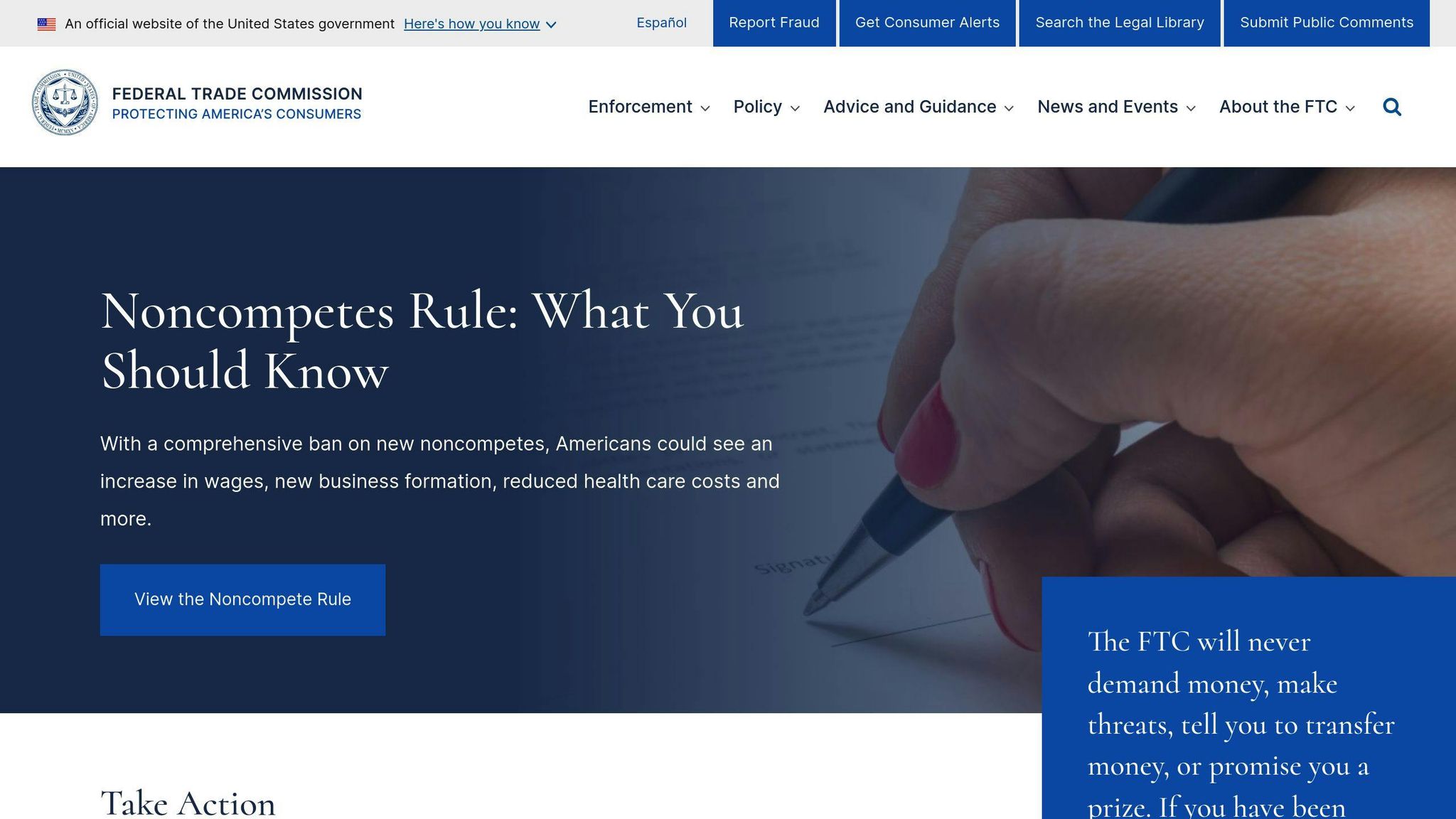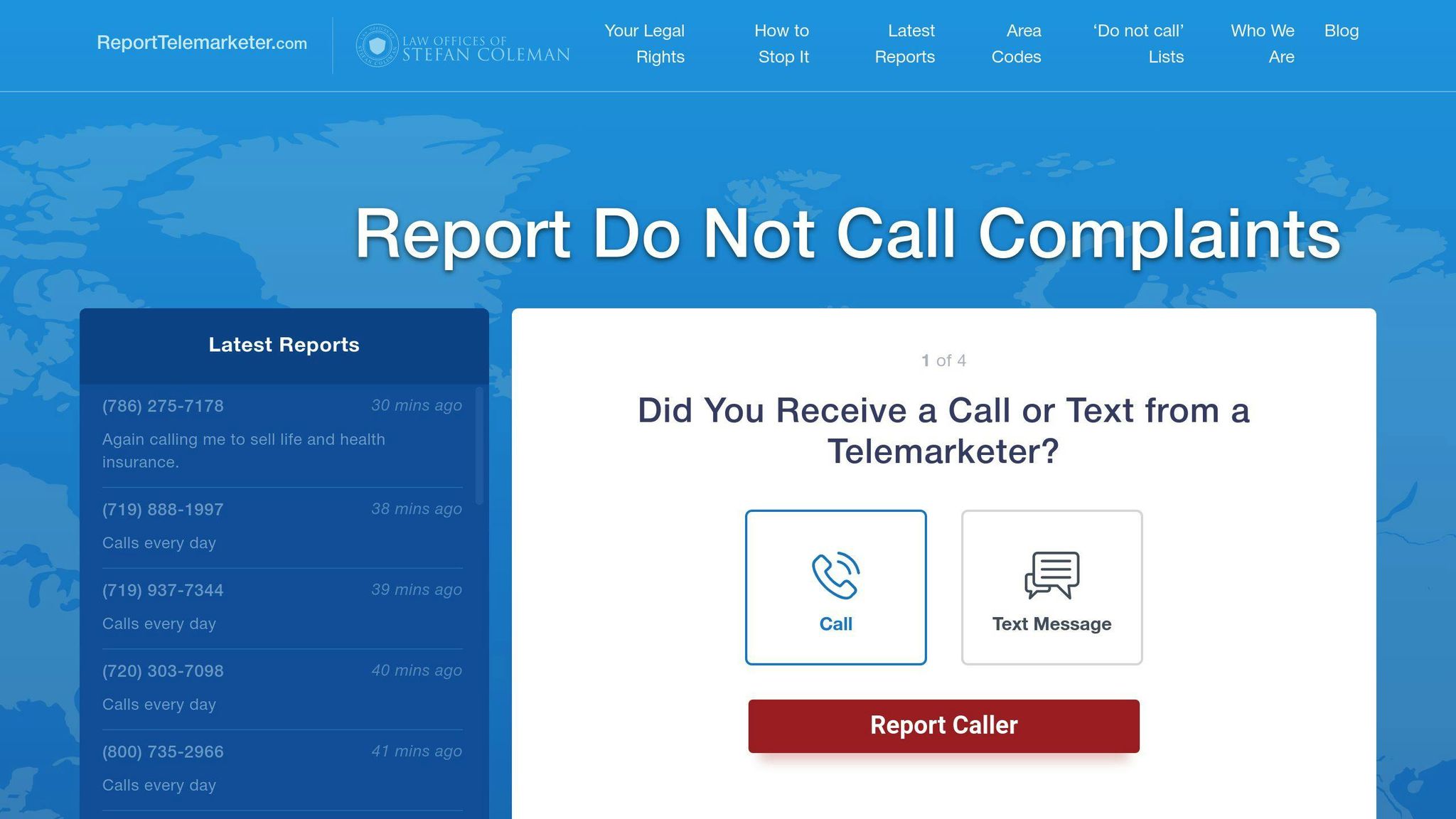
The FTC has introduced stricter rules for telemarketers, requiring call recordings and related records to be kept for five years. These updates aim to protect consumers, improve transparency, and simplify investigations into violations.
Key points of the new rules:
- Who’s Affected: Includes direct telemarketers, B2B telemarketers, third-party sellers, and service providers.
- What’s Required: Retain call recordings, caller ID details, Do-Not-Call (DNC) compliance logs, and transaction records.
- Implementation Timeline: Businesses have 180 days from the Federal Register announcement to comply.
- Penalties: Non-compliance may result in fines, legal action, and audits, though a 30-day safe harbor is available for fixing errors.
These updates bring significant challenges, like higher storage costs and the need for automated systems, but they also enhance consumer protections and accountability in telemarketing.
| Entity Type | Impact Level | Key Requirements |
|---|---|---|
| Direct Telemarketers | High | Retain full call recordings, verify DNC compliance |
| Third-party Sellers | High | Maintain transaction and authorization records |
| B2B Telemarketers | Medium | Newly subject to TSR record-keeping rules |
| Service Providers | Medium | Retain supporting documentation |
Takeaway: Telemarketers must adapt quickly to meet these requirements, ensuring compliance while protecting consumer rights.
Unpacking the FTC‘s Amendments to the TSR

Details of the FTC Rule Changes
The FTC’s updated rules bring clear compliance expectations for various business categories, reflecting a broader scope of oversight.
Expanded List of Covered Businesses
The updates now cover B2B telemarketers, third-party sellers, and service providers, all of whom must meet stricter record-keeping rules. Here’s a breakdown:
| Entity Type | New Requirements | Implementation Timeline |
|---|---|---|
| B2B Telemarketers | Follow full TSR record-keeping rules | 180 days from Federal Register publication |
| Service Providers | Keep detailed transaction records | 180 days from Federal Register publication |
| Third-party Sellers | Retain all call recordings | 180 days from Federal Register publication |
| Support Services | Document business relationships | 30 days for misrepresentation changes |
New Retention Period Requirements
A five-year retention rule now applies to ensure thorough documentation, aiding enforcement and protecting consumers. Telemarketers are required to store call recordings, transaction data, caller ID records, call outcomes, and DNC (Do Not Call) registry logs. To ease the burden, the FTC has introduced a 30-day safe harbor period for correcting accidental record-keeping errors, as long as companies show they are actively working to comply and fix issues.
Additional Record-Keeping Requirements
The updated rules aim to boost transparency and accountability in telemarketing activities. Here’s what businesses need to document:
| Record Type | Required Information | Purpose |
|---|---|---|
| Caller ID Records | Phone number and transmitted name | Assist in compliance investigations |
| DNC Registry Logs | Access dates, subscription details, campaign data | Confirm adherence to regulations |
| Authorization Proof | Consent records, business relationships | Establish legitimacy |
| Campaign Details | Campaign identifiers, call outcomes | Support enforcement tracking |
Telemarketers must also log DNC registry access, including entity details, names, and access dates. These measures enhance the FTC’s ability to investigate and enforce compliance effectively.
Effects on Telemarketers and Sellers
Challenges in Meeting the New Requirements
Telemarketers are grappling with several hurdles as they adjust to the FTC’s updated record-keeping rules. Some of the main obstacles include:
- Higher storage costs and the need for expanded infrastructure to maintain five years of records.
- Adopting automated systems to handle the complexity of tracking and storing data.
- Integrating tools like caller ID systems, the Do Not Call (DNC) registry, and call recording technologies.
- Managing diverse data sources to ensure all documentation is accurate and complete.
These issues demand prompt solutions. Ignoring them could result in steep penalties.
Penalties for Non-Compliance
Failing to comply with these regulations can lead to civil penalties, legal action, and mandatory audits. Enforcement begins as soon as violations are found. However, the FTC does offer a 30-day safe harbor. This allows companies to address temporary record-keeping errors, provided they can show they’re actively working toward compliance. These penalties emphasize the FTC’s focus on protecting consumers from harmful telemarketing practices.
Need for Updated Training and Systems
To meet these new standards, telemarketers must revamp their workflows and invest in both technology and employee training.
"Telemarketers must establish, monitor, and enforce procedures to ensure the completeness and accuracy of their records. This includes training personnel on these procedures and maintaining detailed records of all telemarketing activities."
To comply effectively, companies need systems that can:
- Automatically log and store essential call details.
- Track and document access to the DNC registry.
- Monitor call outcomes and maintain records.
- Generate detailed compliance reports.
Organizations must act quickly to align their operations with these updated requirements and ensure uninterrupted business under the new rules.
sbb-itb-a8d93e1
Comparison to Other Industries’ Rules
Retention Periods in Other Sectors
Different industries have specific rules for how long records must be kept, offering insight into the FTC’s new telemarketing requirements. Here’s a quick look at how retention periods stack up in other fields:
| Industry | Minimum Retention Period | Primary Regulation |
|---|---|---|
| Banking | 7 years | Bank Secrecy Act |
| Healthcare | 6 years | HIPAA |
These industries not only define retention timelines but also highlight practical methods for managing compliance effectively.
Best Practices from Other Fields
Industries with strict record-keeping rules have developed methods to handle compliance challenges. Telemarketers can learn from these approaches:
- Centralized Data Management: The banking sector often relies on well-organized record systems, which simplify compliance tasks and cut storage costs.
- Automated Compliance Tools: Healthcare providers use Electronic Health Record (EHR) systems to manage retention efficiently and stay compliant.
- Cloud-Based Storage: Financial institutions leverage secure cloud platforms to keep records easily accessible while meeting safety standards.
These strategies tackle common issues like high storage costs and complex data management, which are also concerns for telemarketers under the FTC’s new rules. By adopting similar systems, telemarketers can streamline compliance efforts without disrupting daily operations.
Using these proven methods, telemarketers can meet FTC requirements while staying efficient. Companies that implement these practices are better prepared to navigate the updated regulations successfully.
Consumer Benefits from the New Rules
Using ReportTelemarketer.com to Report Violations

The FTC’s updated five-year call record retention rule gives consumers more time and resources to address telemarketing violations. Platforms like ReportTelemarketer.com take advantage of these rules to help users report violations by analyzing telemarketers’ detailed call records.
This platform relies on data such as caller ID, call logs, and Do-Not-Call registry information to pinpoint violators and support consumer complaints. These detailed records make it easier for investigators to enforce consumer protection laws effectively.
Holding Telemarketers Accountable
Expanded recordkeeping requirements improve enforcement and accountability. Telemarketers are given a 30-day safe harbor to address temporary errors, but ongoing violations face strict penalties. With enhanced documentation, broader coverage of business-to-business calls, and better tracking systems, violators are more easily identified and penalized.
These updates, paired with consumer action, create a telemarketing environment with greater accountability. The rules reflect the FTC’s commitment to protecting consumers and promoting transparency in telemarketing practices.
Conclusion: Compliance and Consumer Awareness
Steps Telemarketers Must Take
Under the updated FTC rules, telemarketers are now required to maintain detailed records for five years, an increase from the previous 24-month requirement. Here’s a breakdown of the key documentation they need to keep:
| Required Records | Details to Retain |
|---|---|
| Caller ID Information | Numbers used for calls |
| Call Dispositions | Outcomes and call transfers |
| Consent Records | Proof of informed consent |
| Do-Not-Call Data | Version of registry compliance |
To meet these requirements, companies must upgrade their data systems and ensure staff are trained on the new procedures. These updates not only fulfill legal obligations but also aim to reduce harmful practices, offering better protection for consumers.
Encouraging Consumer Action
The strengthened rules provide consumers with more tools to safeguard their rights. Platforms like ReportTelemarketer.com allow individuals to report violations and pursue legal action. With the extended record retention period, consumers can build stronger cases against non-compliant telemarketers.